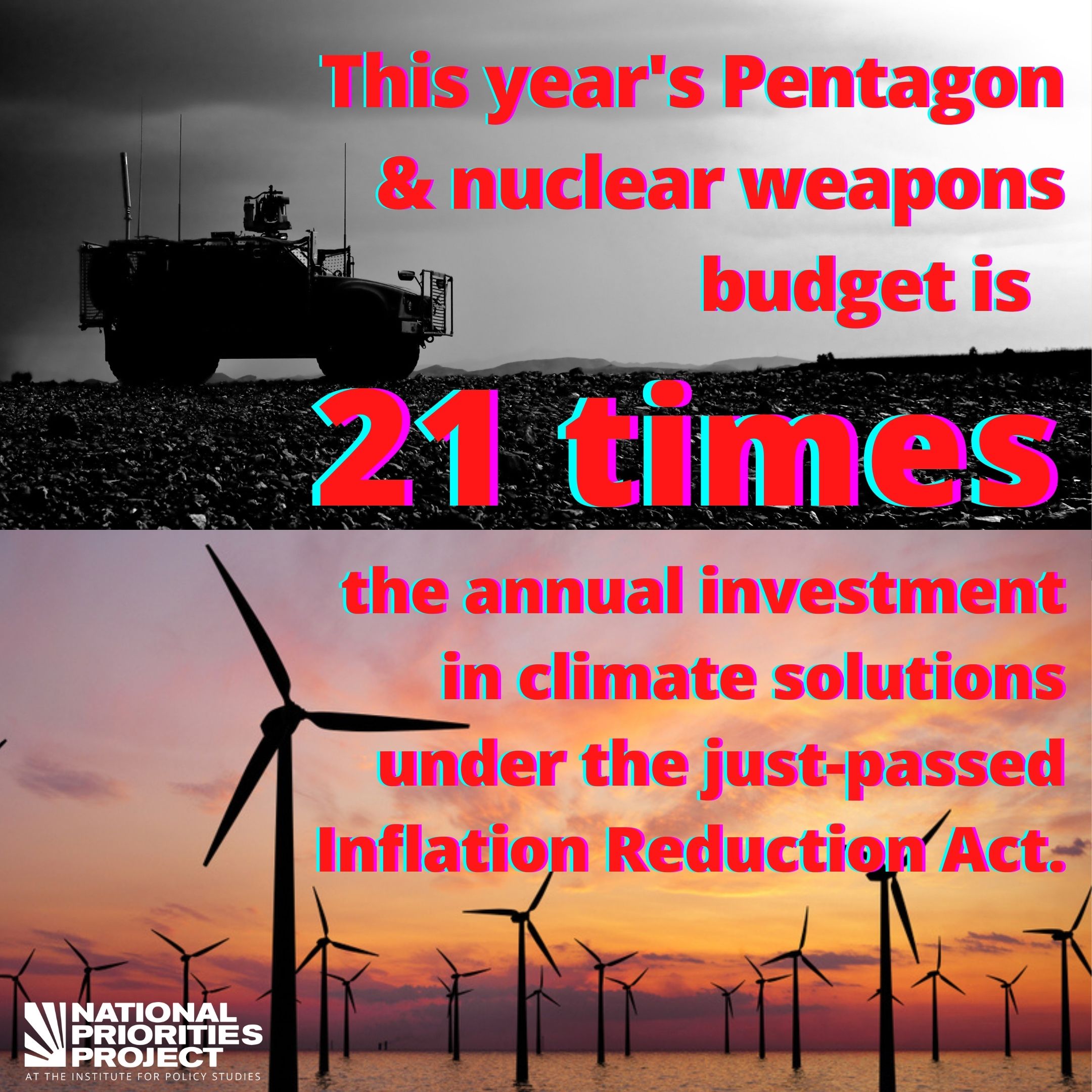FACT SHEET: No National Security without Climate Security
Sept. 29, 2022 - Download PDF Version
Climate change represents arguably the biggest threat to U.S. national security - and human security - of the 21st century. Decades of inaction have led to worsening and more frequent extreme weather events, with associated loss of life and property. And yet in Washington, “national security” is still primarily synonymous with military approaches to geopolitical challenges.
A Twenty-Year Failure to Invest in Climate Action
Through FY 2022, climate change prevention represented barely a blip in the nation’s budget:
-
In the 20 years following 9/11, the U.S. spent $21 trillion on militarized versions of security, including the Pentagon and war, veterans’ programs, homeland security, and federal law enforcement. For less than a quarter of that cost, $4.5 trillion, the U.S. could have built a fully renewable national energy grid.
-
In 2018, the average taxpayer handed over more than $3,400 for the military and nuclear weapons, $123 for disaster relief for increasingly frequent fires, storms, and floods, but barely more than $8 for renewable energy and energy efficiency.(1)
-
In 2021, the average taxpayer gave more than $900 to corporate military contractors, 18 times more than the $51 for public transit and trains that reduce fossil fuel emissions.
The Inflation Reduction Act Doesn’t Measure Up to Military Investments
The Inflation Reduction Act (IRA) represents the largest investment in climate security in this nation’s history. And yet, climate investment under the IRA will average just $37 billion per year over the next ten years. The annual budget for the Pentagon and nuclear weapons is now more than 21 times that much, and is poised to grow by as much as $65 billion this year alone.(2)
Notes
(1) 2018 was notable for several major storms, wildfires, and other disasters that have been shown to be increasingly frequent and severe due to climate change.
(2) FY 2022 enacted military spending was $782 billion. The current Senate proposal for FY 2023 stands at $847 billion.

###
National Priorities Project at the Institute for Policy Studies reports, our interactive budget calculator for federal budget priorities, and our annual tax receipt can be found at www.nationalpriorities.org.